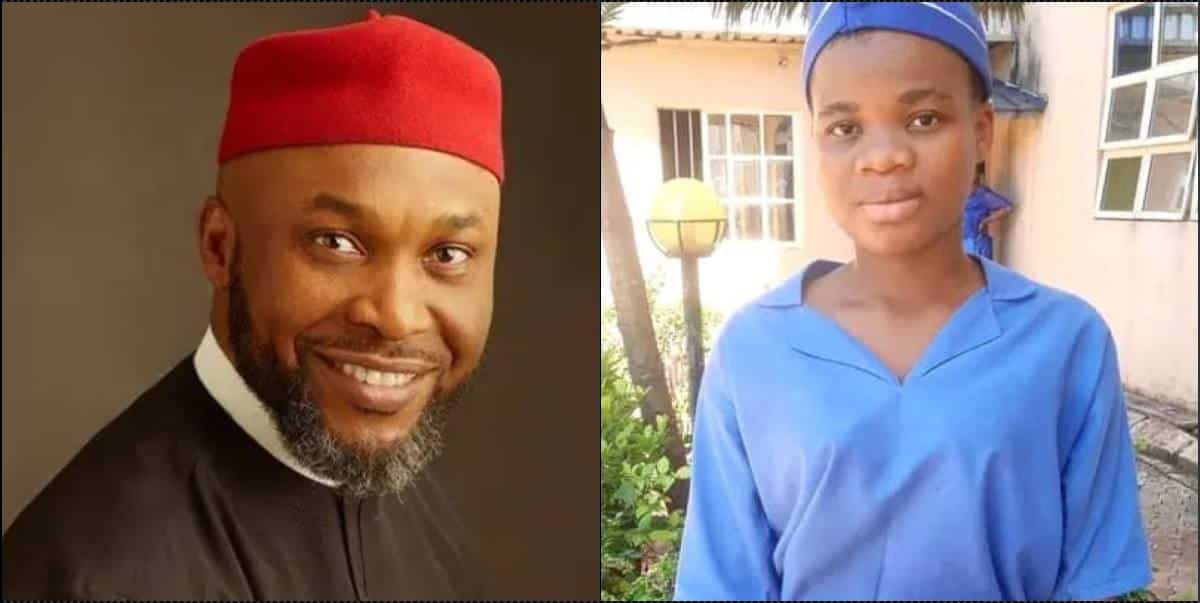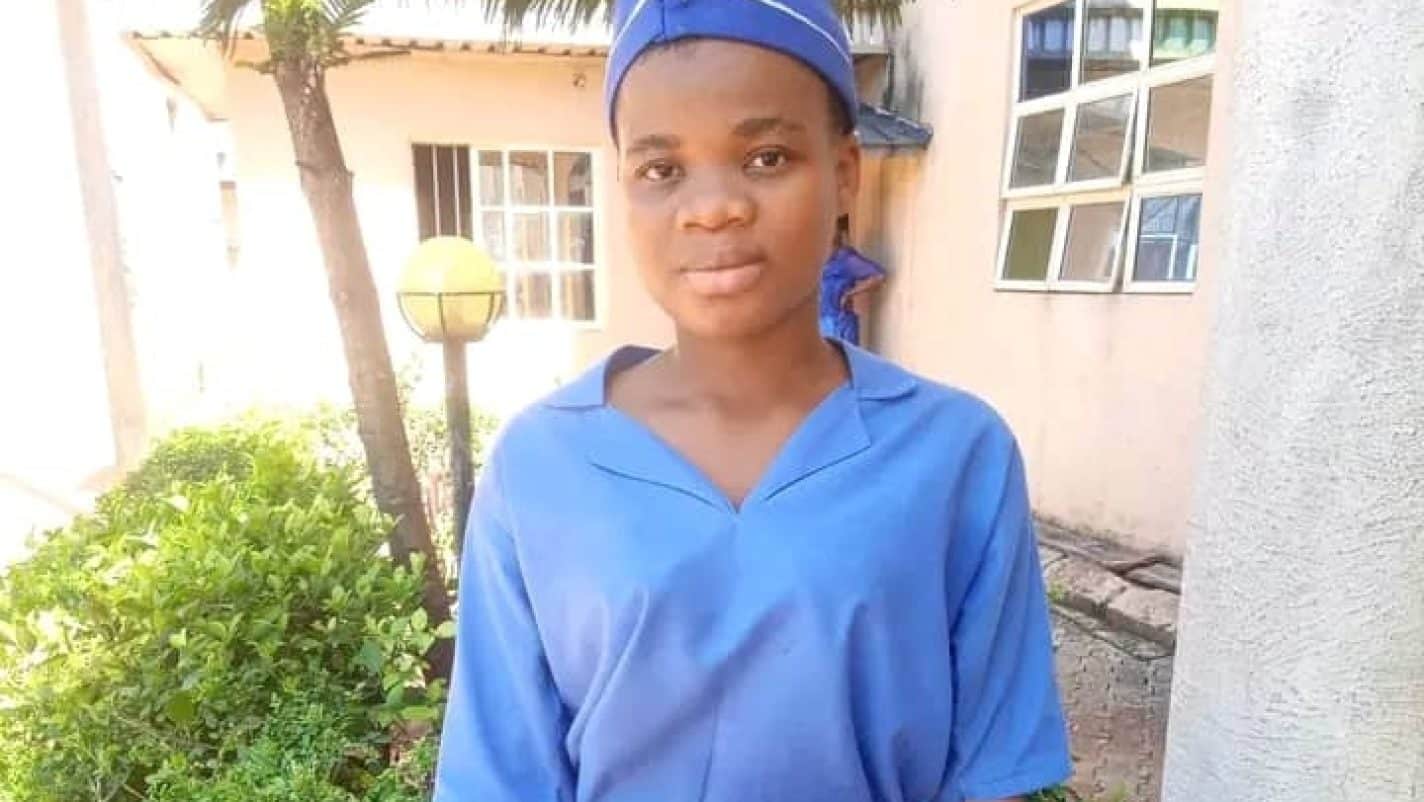
A former Minister of Aviation and owner of a CBT centre, Osita Chidoka appeals to Mmesoma Ejikeme, a pupil from Anambra state, who is been accused by JAMB of inflating her 2023 UTME result, urging her to be honest.
Mmesoma Ejikeme gained media attention after JAMB issued a statement accusing her of fabricating her result and falsely declaring herself as the top scorer.

JAMB stated that Mmesoma actually scored 249 on the exam, contradicting her claim of 362. Consequently, the board revoked Mmesoma’s result and banned her from taking the exam for the next three years.
On July 5, in a statement released, Chidoka, who owns the Computer-Based Testing (CBT) Centre where Mmesoma took her exam, urges her to come clean. Chidoka highlighted that the result Mmesoma was asserting contained the former name of his centre, which has since been changed.
“Miss Nmesoma Ejikeme took her 2023 JAMB at my foundation’s Computer-Based Testing (CBT) Center at Obosi. I got some calls from worried friends about Nmesoma’s result, which had Thomas Chidoka Center as her examination center. I allayed their worries that the result issue had nothing to do with the examination center.

I observed two significant red flags when I saw her result online. First, our center is no longer addressed as Thomas Chidoka Center for Human Development on the JAMB portal since 2021. The correct name on the JAMB portal and Main Examination Slip is Nkemefuna Foundation (Thomas Chidoka Center for Human Development). Due to the difference in our CAC registration details, JAMB insisted we change to Nkemefuna Foundation with Thomas Chidoka in a bracket as an identifier. We implemented the name change in 2021. Her result showing Thomas Chidoka without the Nkemefuna Foundation, which was on her Main Examination slip, raised my suspicion about the genuineness of the result.
The second red flag was the result template. A cursory review of some of those who took the last examination at our center showed a different result slip template with the candidate’s passport picture, JAMB watermarks, and no mention of the name of the examination center. I gave the young Nmesoma the benefit of the doubt and waited to see if she would explain how she got the result, which is obviously not the result template that Jamb used in 2023. I knew it was fake.
Our Center has been involved with the JAMB CBT examination since 2016, and I have come to trust the integrity of the JAMB online examination platform. As Corps Marshal in 2011, I used JAMB to conduct the FRSC recruitment exercise that is still adjudged a high-water mark in public sector recruitment. Those recruited through that process wear their uniform with pride and continue to deliver value to the organisation to this day.
For me, the real issue in this saga is the level of distrust of our national institutions. The social media frenzy and denigration of JAMB, together with the ethnic slant of a simple issue with clear and verifiable methods of resolution, is symptomatic of the deep distrust of our national institutions. This distrust was deepened in the past 8 years with a horrifying descent of issues to our national fault lines. The Ethnicisation of the issue is sad and disappointing.
I doff my hat for JAMB. They came out forcefully and defended their integrity vigorously. They shared the USSD communication between Nmesoma’s phone and their servers with timestamps. Mr. Fabian Benjamin, the JAMB spokesperson, did a yeoman’s job in explaining how their system works and the security of their result portal. He even asked anyone who cares to crosscheck with AIRTEL, the network provider of Nmesoma.’s phone. Their transparency was compelling and disarming.
The JAMB Registrar, Professor Oloyede, issued statements based on facts and defended the integrity of a foremost Nigerian institution whose failure would have had a catastrophic effect on Nigeria’s educational and CBT systems. I was impressed. JAMB’s reaction and responsiveness should be made a minimum benchmark for government agencies. Our universities should write case studies of this saga so other institutions can learn how to navigate social media and information management in the face of unrelenting attacks.
JAMB’s response is an example to follow. If INEC leadership has any sense of shame and any shred of integrity, they should save President Tinubu from a needless legitimacy question by behaving like JAMB. They should step forward and explain what technical glitch they had on election day that marred the upload of form EC8As from polling units across the country.
They should share with the public the interaction between the BVAS sim cards and their servers. They should share the audit report of their servers during the failed upload. When Dominion, an election system company in the United States, was defamed by FOX TV, they went to court to defend the integrity of their system, and the court awarded them $700M. Maintaining the integrity of elections is fundamental to democracy.
INEC, as a public-funded institution, should share with the citizens all forms EC8Bs collated at the 8809 wards, EC8Cs, collated at the 774 LGAs, and EC8Ds collated at the 36 States and fully upload all the EC8As on IREV after the fact using the original copies submitted by the Presiding officers. This cannot be asking for too much from an institution led by a professor who spent $650.57 million (N303.17 billion) to conduct the 2023 election.
Like Jamb, INEC must be accountable to the people of Nigeria. They should step forward and restore the integrity and sanctity of elections in Nigeria and remove the cloud of illegitimacy surrounding the election of President Tinubu if their system worked as they are claiming. The courts can not remove the national disappointment, odium, and massive distrust of INEC’s election infrastructure, no matter the decision.
For Nmesoma, she should come clean and explain how she got that result and who led her down that path. If she does that, I will lend my voice to beg JAMB to note her age and show more leniency.”

Leave a Reply